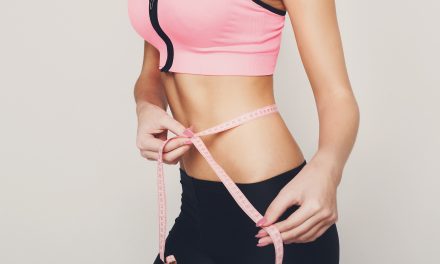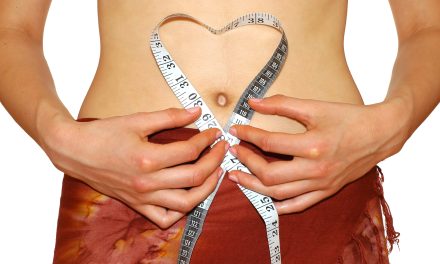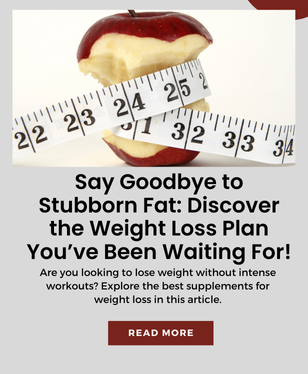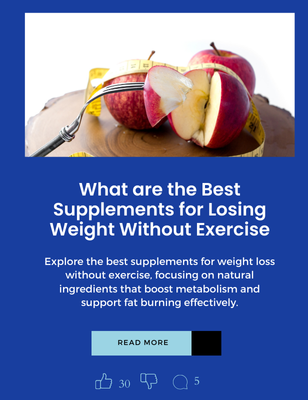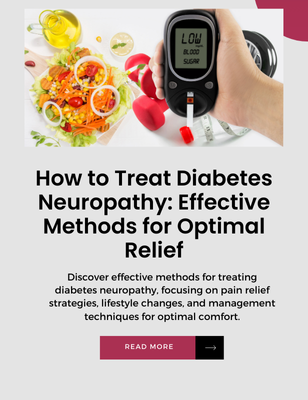Attempting to lose weight without the aid of exercise is a challenge that has led many to explore the realm of dietary supplements as a supportive tool. While no supplement can magically melt fat, some compounds have been studied for their potential to support weight management by influencing metabolic rate, appetite, or body composition. When considering supplements for weight loss, it’s important to understand that they are designed to complement a nutritious diet and healthy lifestyle, not replace them.

Nutrition plays a pivotal role in weight loss, with or without exercise. Effective supplements may contain ingredients that have been shown to assist in curbing appetite, improving metabolic health, or providing nutrients that support the body during calorie restriction. Insets of water and its role in weight management, ensuring proper hydration is essential and is sometimes addressed with supplements designed to help retain a proper balance of electrolytes.
Key Takeaways
- Supplements may support weight loss by affecting appetite, metabolism, or nutrient intake.
- A nutritious diet is fundamental in conjunction with supplementation for weight management.
- Adequate hydration is a key component that can influence weight loss efforts.
Understanding Weight Loss Fundamentals
To effectively approach weight loss without exercise, one must have a clear understanding of the intricate biological processes that govern body weight, particularly metabolism, and the influence of nutrition.

The Role of Metabolism in Weight Management
Metabolism is the set of life-sustaining chemical reactions in organisms that converts food into energy. In weight management, the rate of one’s metabolism determines the number of calories burned. A faster metabolism can lead to weight loss by burning more calories at rest and during activity. Conversely, a slower metabolism can make it challenging to lose weight, as fewer calories are expended.
Nutrition and Diet Impact
Nutrition plays a critical role in weight management, with certain nutrients affecting body fat levels. A diet that is high in processed foods and sugars can lead to weight gain, while a diet rich in fiber, protein, and healthy fats can support sustainable weight loss. Caloric intake is also crucial; consuming fewer calories than one expends leads to weight loss, as the body starts to utilize stored fat for energy.
The Science Behind Supplements
In the quest for weight loss without exercise, supplements are often marketed as a solution. Understanding their effects and the research backing their claims is critical for informed decisions.
How Supplements Influence Fat Loss
Supplements aimed at weight loss typically work by modifying metabolism, suppressing appetite, or impairing dietary fat absorption. Caffeine, for example, boosts metabolic rate, increasing energy expenditure even while at rest. Fiber supplements can enhance feelings of fullness, leading to reduced calorie intake. The weight loss supplement alli (Orlistat) is one such product that acts by preventing the absorption of fats from the diet, thus reducing caloric intake.
- Metabolic boosters: Increase calorie burning
- Appetite suppressants: Reduce calorie intake
- Fat absorption inhibitors: Decrease fat uptake from foods
Clinical Trials and Research
Clinical trials assess the safety and efficacy of weight loss supplements by comparing their effects to a placebo in blinded studies. While some supplements show promise, others lack significant scientific backing. For example, the Mayo Clinic discusses how the purported benefits of weight loss supplements should be weighed against potential risks and the level of scientific evidence supporting their use. On the other hand, the FDA has approved all based on research that demonstrates its effectiveness when used alongside a reduced-calorie and low-fat diet. It’s also important to consider that not all supplements are subject to rigorous regulatory scrutiny, rendering some potentially unsafe or ineffective.
Curbing Appetite Naturally
Effective weight management often involves techniques to help control hunger, and natural methods can play a pivotal role. These methods focus on dietary components and behavioral tactics that promote a feeling of fullness, known as satiety, which can lead to reduced calorie intake without exercise.
Fiber’s Effect on Satiety
Fiber is a potent appetite suppressant. It contributes to satiety by absorbing water and expanding in the stomach, making one feel fuller for longer. High-fiber foods often require more chewing, which further assists in appetite control.
| Food Source | Type of Fiber | Benefits |
|---|---|---|
| Beans and Legumes | Soluble and Insoluble | Increase fullness, slow digestion |
| Whole Grains | Mostly Insoluble | Promote gut health, add bulk to diet |
| Fruits & Vegetables | Soluble and Insoluble | Provide volume and nutrients with low calories |
Incorporating these fiber-rich foods into meals can naturally curb the appetite and support weight loss goals without strenuous exercise regimes.
Mindful Eating Strategies
Mindful eating is a practice that involves paying full attention to the eating experience. It encourages one to eat slowly, allowing the brain to recognize fullness signals, potentially leading to reduced food intake.
- Chewing slowly: By taking time to chew food thoroughly, one can decrease the eating pace, enhancing the digestion and absorption of nutrients.
- Smaller plates: Using smaller containers can trick the brain into feeling satisfied with less food, a strategy supported by visual cues impacting perceived portion sizes.
- Drinking water: Consuming water before or during meals can fill the stomach and decrease hunger, often resulting in lower calorie consumption.
Adopting these mindful eating techniques may support individuals in naturally managing their appetite and reducing their food intake without the necessity of exercise.
Supplements and Macronutrients

Understanding the impact of supplements that influence macronutrient intake is critical in weight loss without exercise. These supplements can modulate the diet’s balance of proteins, carbs, and fats, potentially aiding in weight management.
Protein and Weight Loss
Protein supplements are often associated with satiety, which can help manage hunger and reduce calorie intake. They play a pivotal role in preserving lean muscle mass, especially when trying to lose weight without exercise. Whey protein, for instance, has been shown to support weight loss by promoting satiety and preserving lean body mass. Additionally, protein-rich supplements could aid metabolic rate, as the body expends more energy to process protein than carbs or fat.
The Role of Carbs and Fats
While often demonized in weight loss conversations, carbs and fats are essential nutrients. However, certain supplements, such as fiber, can alter the absorption of carbohydrates, and omega-3 fatty acids, usually found in fish oil supplements, may support a healthy metabolism. These nutrients can be part of a weight loss strategy as they influence one’s energy balance. A reduced intake of dietary fat, moderated by supplements like conjugated linoleic acid (CLA), might also lead to modest weight loss.
Vital Supplements for Weight Management

When aiming for weight loss without the aid of exercise, certain supplements can play a supportive role. The focus is often on vitamins and minerals that enhance metabolic rate, herbs and extracts known to assist in fat burning potentially.
Top Vitamins and Minerals
- Vitamin D: Research indicates that vitamin D may support weight management, highlighting the benefits of maintaining adequate levels in the body.
- Iron: This essential mineral is critical for transporting oxygen throughout the body, necessary for energy production and a healthy metabolism.
- Magnesium: Involved in over 300 enzymatic reactions, magnesium aids energy creation and can influence the body’s fat-burning capabilities.
Herbs and Extracts for Metabolic Boost
- Green Tea Extract: Abundant in antioxidants known as catechins, green tea extract is often associated with increased metabolism and has been studied for its potential to facilitate weight loss.
- Caffeine: Frequently utilized for its temporary metabolic boosting effects, caffeine is a common ingredient in weight loss supplements that aims to increase fat oxidation and alertness.
Hydration and Weight Loss
Proper hydration is a critical factor in effective weight loss strategies. It not only helps to reduce caloric intake but also supports the metabolic processes that are essential for burning calories.

Water Intake and Caloric Reduction
Drinking ample amounts of water can lead to a reduction in calorie consumption. When individuals drink water before meals, they often experience a feeling of fullness that can result in a lower caloric intake. Studies suggest that an increase in water consumption is associated with fewer daily calories consumed, which can be a simple yet effective method for weight control.
The Hydration Factor in Fat Loss
Hydration plays a crucial role in metabolism. Metabolic functions require water to burn calories and fat efficiently. Adequate water intake ensures that the body’s metabolic processes are not hindered, thus optimizing the body’s ability to metabolize fat. Without sufficient hydration, the body may struggle to burn calories and fat efficiently, which can stall weight loss efforts.
Addressing Lifestyle Factors

While supplements can play a role in weight loss, they are complemented by certain lifestyle factors that significantly affect body weight. Recognizing the impact of sleep and stress management is essential for anyone seeking to lose weight without relying on exercise alone.
Impact of Sleep on Weight
Adequate sleep is critical for weight loss, with research linking insufficient sleep to an increased risk of obesity. Individuals should aim for 7 to 9 hours of quality sleep each night, as this helps regulate the hormones ghrelin and leptin, which control hunger and fullness. Studies have found that people who sleep less tend to have higher levels of ghrelin, the appetite-stimulating hormone, and lower levels of leptin, the satiety-inducing hormone, leading to increased food intake.
Managing Stress and Weight
Stress management is another pivotal factor in weight control. High-stress levels can lead to the overproduction of cortisol, a hormone associated with increased appetite and weight gain. Effective stress reduction techniques can include mindfulness practices, deep breathing exercises, or engaging in leisure activities that one enjoys. Reducing stress makes it easier to make healthier food choices and moderate their eating habits.
Incorporating these lifestyle changes can offer substantial benefits to individuals looking to lose weight without exercise. Still, they should not be viewed as a substitute for overall healthy living, which includes a balanced diet, adequate hydration, and possibly supplementation as recommended by healthcare professionals.
Considerations for Supplement Use

When considering supplements for weight loss without exercise, it’s crucial to approach cautiously. Supplements can offer potential benefits but carry risks and are not a one-size-fits-all solution.
Consulting with a Doctor
Before starting any supplement regimen, it is imperative to consult with a doctor. Physicians can provide personalized advice based on one’s health history and condition. They help ensure that a supplement won’t interact negatively with medications or exacerbate pre-existing health problems. For instance, some weight management supplements can have cardiovascular effects, making them unsuitable for those with certain heart conditions.
FDA Oversight and Supplement Safety
Supplements are regulated by the FDA but differently from prescription medications. The FDA does not approve dietary supplements for safety and effectiveness before marketing them. Consumers should look for accessories independently tested by organizations like USP or NSF. It is essential to research and choose accessories that have a clear label of their ingredients and are from reputable manufacturers to avoid health risks associated with unverified products.
Analyzing Popular Weight Loss Supplements

When exploring the market for weight loss supplements, it is vital to consider the efficacy and working mechanisms of products touted as solutions for shedding pounds without the need for exercise. This section dissects the reality behind the most prominent supplements, focusing on their purported benefits and how they function.
The Truth About Thermogenic Fat Burners
Thermogenic fat burners, such as Transparent Labs Fat Burner, claim to increase metabolism by raising the body’s temperature, enhancing the ability to burn fat. Ingredients like green coffee bean extract and synephrine are often featured in these supplements. Green coffee bean extract is believed to affect the absorption of fat and glucose in the gut, while synephrine is a stimulant that increases calorie burn.
- Raspberry Ketone: Another thermogenic agent that aims to break down fat within cells more effectively.
- Forskolin: Sourced from the root of a plant in the mint family, it is claimed to raise levels of a compound inside cells called cyclic AMP, which may stimulate fat burning.
- Bioperine: Often derived from black pepper, this compound aims to enhance the absorption and effectiveness of other ingredients.
It is important to note that while the concept sounds promising, thermogenic supplements may not be effective for everyone, and the long-term effects are not well-documented.
Appetite Suppressants and How They Work
Appetite suppressants aim to reduce food intake by creating a feeling of fullness or reducing cravings. One common ingredient is L-theanine, an amino acid found in tea, which may have calming effects and contribute to a reduction in appetite. However, the evidence supporting the efficacy of L-theanine as an appetite suppressant is inconclusive.
- Transparent Labs Fat Burner: Also contains appetite suppressants that work by possibly affecting hunger hormones or creating a sense of satiety.
- Fiber: Not an ingredient in this particular brand, but many appetite suppressants contain fiber, which expands in the stomach and contributes to fullness.
Supplements such as these may help curb hunger, but their success will depend on individual factors such as diet, lifestyle, and biological variations. Users are encouraged to maintain realistic expectations and consult healthcare providers before starting any supplement regimen.
Behavioral Approaches to Eating
Regarding weight loss without exercise, adopting certain eating behaviors can effectively reduce caloric intake and promote a healthy diet. Focusing on reducing portion sizes and choosing more nutritious snacks are pivotal strategies.
Reducing Portion Sizes
Portion control is critical in managing caloric intake. A simple method to reduce portions is using smaller plates, which visually signals satisfaction with less food. Individuals may also find it beneficial to pre-measure portions to avoid overeating. For instance, one might serve a single piece of rice or pasta rather than eating directly from a larger pot.
- Example of Portion Sizes:
- Carbohydrates (rice, pasta): A portion the size of a fist.
- Proteins (meat, fish): A deck of cards represents an adequate portion.
- Fats (cheese, nuts): A bit about the size of a thumb.
Avoiding sugary drinks is another effective behavioral change; these drinks often come in large portions and are high in sugar, which can significantly increase daily caloric consumption.
Healthy Snack Selection
Selecting healthy snacks is as essential as managing central meal portions. Snacks rich in fiber and protein can satisfy hunger without excessive calories. Fresh fruits, vegetables, and nuts are excellent choices. In contrast, snacks high in sugar should be limited due to their minimal nutritional value and contribution to weight gain.
- Healthy Snack Options:
- Fresh fruit slices or whole fruits like apples and pears.
- A handful of almonds or walnuts.
- Yogurt with a sprinkle of chia seeds.
By replacing high-calorie snacks with these options, one can avoid unnecessary sugar intake, thus supporting a healthy diet.
Supplements and Exercise Integration
Integrating supplements into an exercise routine can enhance workout efficiency and aid post-exercise recovery. It is essential to understand how certain supplements work in tandem with physical activity to maximize the benefits of a workout plan.
Enhancing Workout Efficiency
Supplements aimed at enhancing workout efficiency often target the body’s energy utilization. Creatine, for example, is renowned for its ability to help muscles produce more energy during high-intensity exercise. It can increase muscle mass and strength when combined with regular physical activity, such as weightlifting or sprinting.
Another critical supplement is beta-alanine, which can help buffer muscle acidity during intense exercise. Reducing the accumulation of lactic acid can potentially improve performance in short bursts of physical activity and delay fatigue.
Post-Exercise Recovery Aids
Post-exercise recovery is crucial for muscular development and overall fitness. Like whey protein, protein supplements facilitate muscle repair and growth by supplying the body with essential amino acids. They can be particularly effective when consumed after a workout, as they assist in rebuilding muscle tissue that has been broken down during physical activity.
Omega-3 fatty acids, available in fish oil supplements, are also beneficial for recovery. They boast anti-inflammatory properties that may help reduce soreness and accelerate recovery time, allowing for consistent participation in regular physical activity.
In conclusion, while supplements can support an exercise regimen, they are most effective when used with a balanced workout plan and a healthy diet.
Frequently Asked Questions
This section addresses common inquiries about the role and effectiveness of vitamins and supplements in weight loss for various age groups and explores the potential of supplements and diet modifications to reduce weight without exercise.
Which vitamins are most effective for weight loss in individuals over 50?
For individuals over 50, vitamins that support metabolism, like B vitamins, particularly B12, may be effective for weight loss. Additionally, vitamin D has been linked to supporting fat loss, especially when combined with calcium.
Are there specific vitamins that aid in weight loss for those over 40?
Yes, those over 40 may also benefit from B vitamins, which help convert food into energy, and vitamin D, which can be harder to synthesize naturally as one age.
What are some proven weight loss supplements that work quickly?
While individual results may vary, green tea extract and caffeine are supplements with evidence supporting their ability to accelerate fat burning. However, quick results should be approached with caution and realistic expectations.
Can a diet alone be effective for weight loss without incorporating exercise?
A calorie-controlled diet can lead to weight loss without exercise, although combining both typically results in better outcomes. Strategic dietary choices contribute significantly to a weight loss program’s success.
What natural supplements have the best track record for promoting weight loss?
Green tea extract, probiotics, and fiber supplements, like glucomannan, are natural options with evidence supporting their utility in promoting weight loss by boosting metabolism or increasing satiety.
How can one boost their metabolism and burn fat naturally without exercise?
One can enhance their metabolism through certain dietary adjustments that increase thermogenesis, such as incorporating spices and consuming protein-rich foods with a higher thermic effect.











